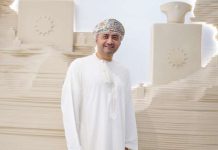Oman: The Sultanate’s energy sector is currently undergoing a significant transformation, driven by the government’s determination to diversify energy sources and enhance infrastructure efficiency.
A recent report from EnergyPortal.eu highlights the country’s growing focus on renewable energy, energy efficiency, and alternative sources like nuclear power and hydrogen, all expected to reshape Oman’s energy landscape in the future. To achieve these goals, addressing investment challenges, human capital development, and regulatory support is crucial.
Traditionally reliant on oil and gas production, Oman is proactively pursuing alternative energy sources, particularly renewables, to achieve sustainable growth and reduce dependence on hydrocarbons. The government has set ambitious targets to generate 10% of total power from renewables by 2025, marked by investment in solar and wind power projects like the 500 MW Ibri II Solar Independent Power Project and the 50MW Dhofar Wind Farm.
Moreover, energy efficiency and conservation also receive significant attention, with initiatives adopting energy-efficient building codes and energy performance labels for electrical appliances. Upgrading existing power infrastructure further enhances efficiency by reducing transmission and distribution losses.
Additionally, Oman is also exploring alternative energy sources like nuclear power and hydrogen. A 2019 MoU with the United States reflects the country’s interest in nuclear energy, while participation in global discussions on hydrogen highlights its potential as a clean energy carrier.
The outlook for Oman’s energy market appears promising due to the government’s commitment to diversification and efficiency enhancement. However, challenges remain, necessitating comprehensive measures to ensure a successful transformation.
Oman’s Minerals Revenue
The Energy and Minerals Forum in Salalah shed light on Oman’s flourishing minerals sector, revealing an impressive 11% increase in total revenues in 2022. Discussions on the hydrogen sector emphasized its potential as a clean energy carrier, underscoring Oman’s forward-thinking approach to sustainability.
Oman’s EV infrastructure
A major announcement during the forum was the OQ Group’s initiative to establish Electric Vehicles One (EVO), dedicated to developing Oman’s electric vehicle infrastructure. This aligns with the country’s goal of achieving net-zero emissions by 2050, fostering a culture of sustainability and environmental responsibility.
Furthermore, Oman’s comprehensive efforts to accelerate its green transition include phased integration of electric vehicles, aiming for 79% electric vehicles by 2035 and a complete phase-out of fossil fuel-powered vehicles by 2050. And incentives, such as tax exemptions and a robust charging infrastructure, support the widespread adoption of electric vehicles.
With a well-defined roadmap toward a cleaner future, Oman’s energy and minerals sectors are poised for unprecedented growth and innovation. The country’s determination to emerge as a regional leader in sustainable practices reflects its commitment to safeguarding the environment for future generations.







